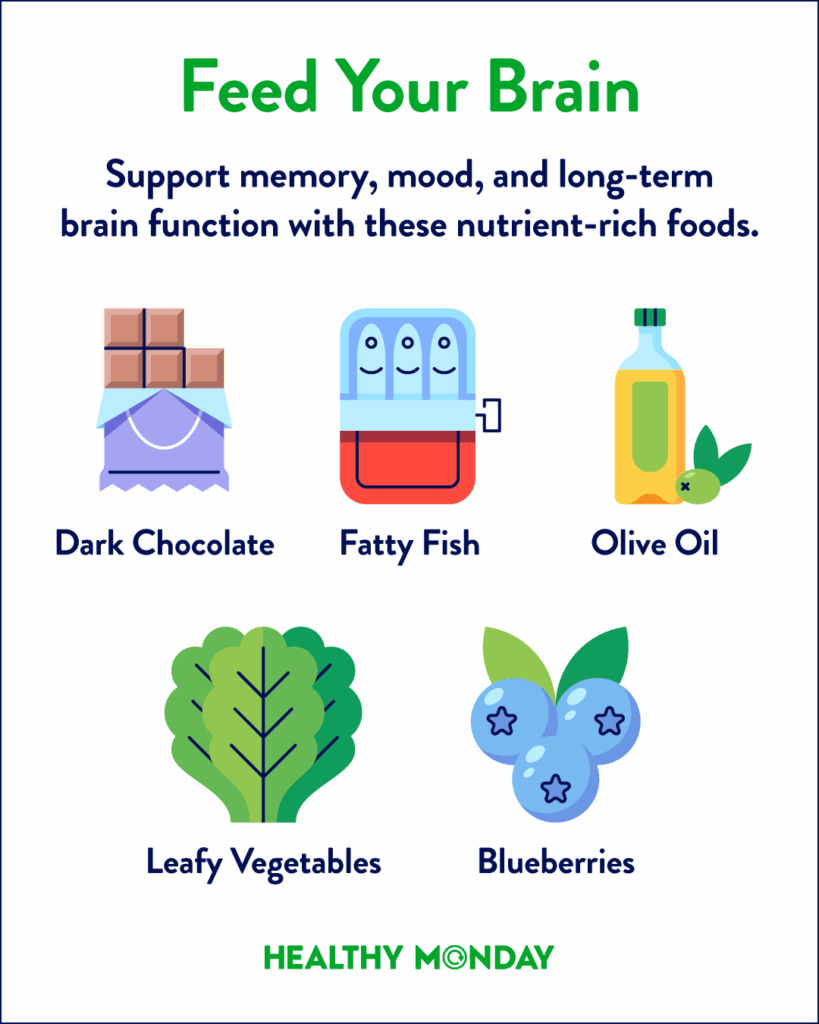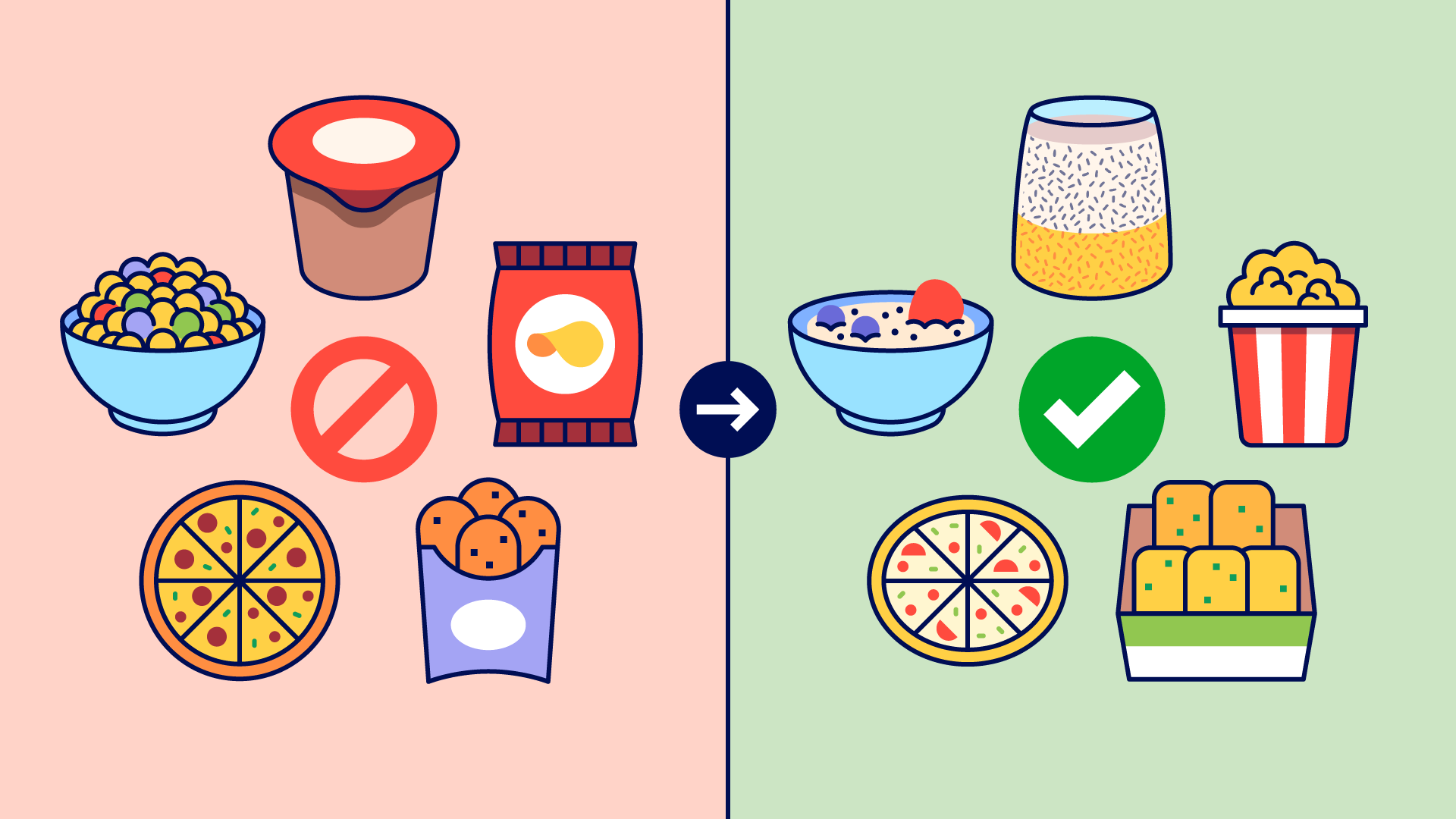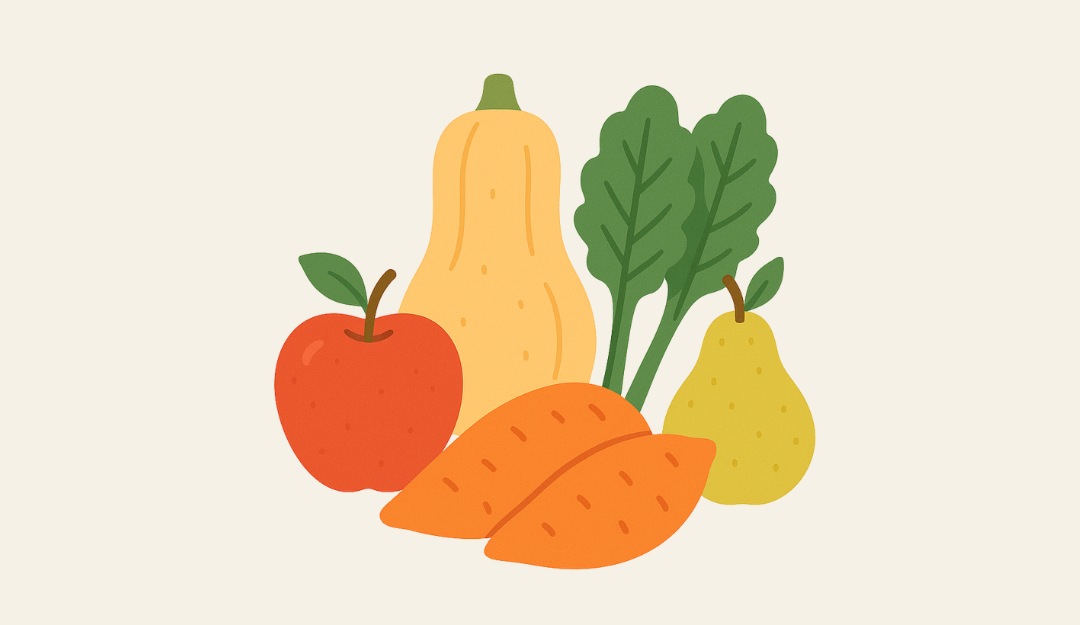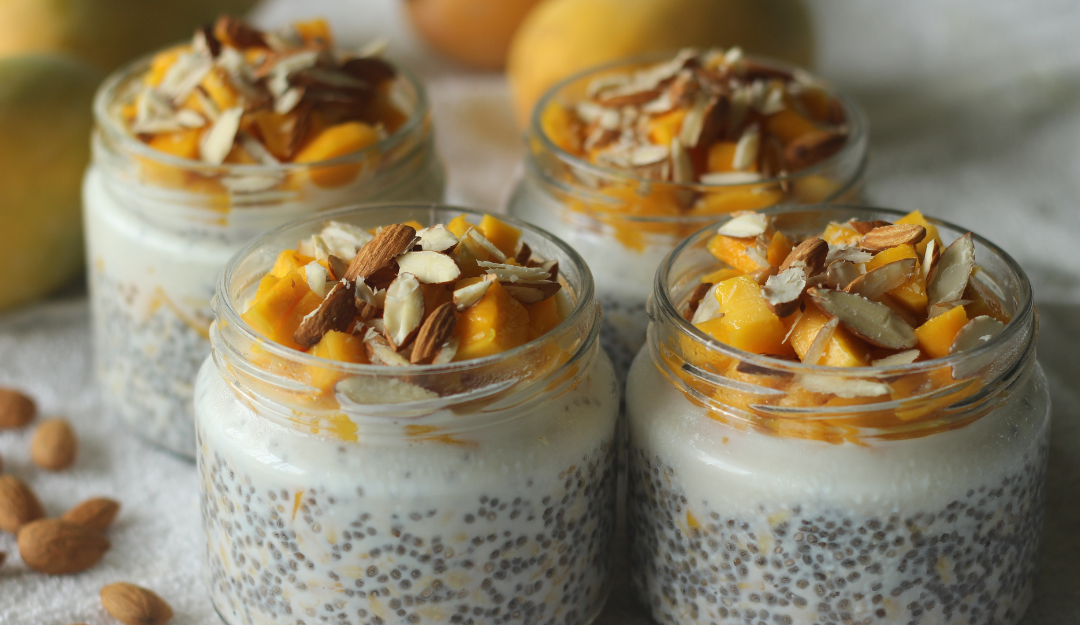Feed Your Mind with Five Foods for Brain Health
How Food Affects the Brain
Like the rest of your organs, the brain requires energy to complete its dizzying number of functions, the primary source of which is the food you consume.
Nutrient-rich ingredients provide the brain with the resources it needs to protect itself from oxidative stress, rebuild cells, maintain cognitive functions, and control the production of neurotransmitters, which play a crucial role in mood regulation and emotional well-being.
Eating heavily processed foods, however, has the opposite effect. Research shows that the overconsumption of refined sugars may increase inflammation, worsen depression symptoms, and hinder brain function. To provide your brain with the highest quality fuel, it’s important to eat a diverse diet, consisting predominantly of fruits, vegetables, grains, lean proteins, nuts, and other minimally processed foods.
Don’t know what exactly to put in your shopping cart on your next trip to the supermarket? Focus on the ingredient groups below to help promote cognitive function and set your brain up for success.
What to Eat for Better Brain Health
Dark Chocolate
Excessive consumption of refined sugar can have adverse health effects, but a few squares of dark chocolate after dinner may actually improve cognitive performance. Studies show that the flavanols present in cocoa can help improve blood flow to the brain, specifically to the frontal cortex, the area of the brain linked to problem-solving and decision-making.
Fatty Fish
Fatty fish, such as salmon, mackerel, and sardines, are a good source of omega-3 fatty acids, a type of polyunsaturated fat that studies have found to improve memory, learning, and blood flow in the brain.
Olive Oil
Olive oil is the cornerstone of the Mediterranean diet and is linked to numerous health benefits, including lower cholesterol levels and reduced inflammation. However, this unsaturated fat is also a powerful ingredient for promoting brain health, especially in older adults. Recent research suggests that consuming as little as a half a tablespoon of olive oil per day can significantly reduce one’s risk of dying from dementia, compared to someone who never or rarely consumes olive oil.
Leafy Vegetables
Spinach, collards, kale, and other green leafy vegetables are packed with nutrients that help slow cognitive decline with aging. One study found that participants (who were an average age of 81 years old) with the highest consumption of leafy greens had a cognitive age 11 years younger than those participants who consumed the least.
Blueberries
These remain one of the world’s true superfoods. Blueberries contain anthocyanins, which contribute to their deep purple color as well as promote other benefits, such as reduced oxidative stress and lower levels of inflammation. Their antioxidant content also helps protect DNA and minimize the damage of cognitive and age-related diseases.



